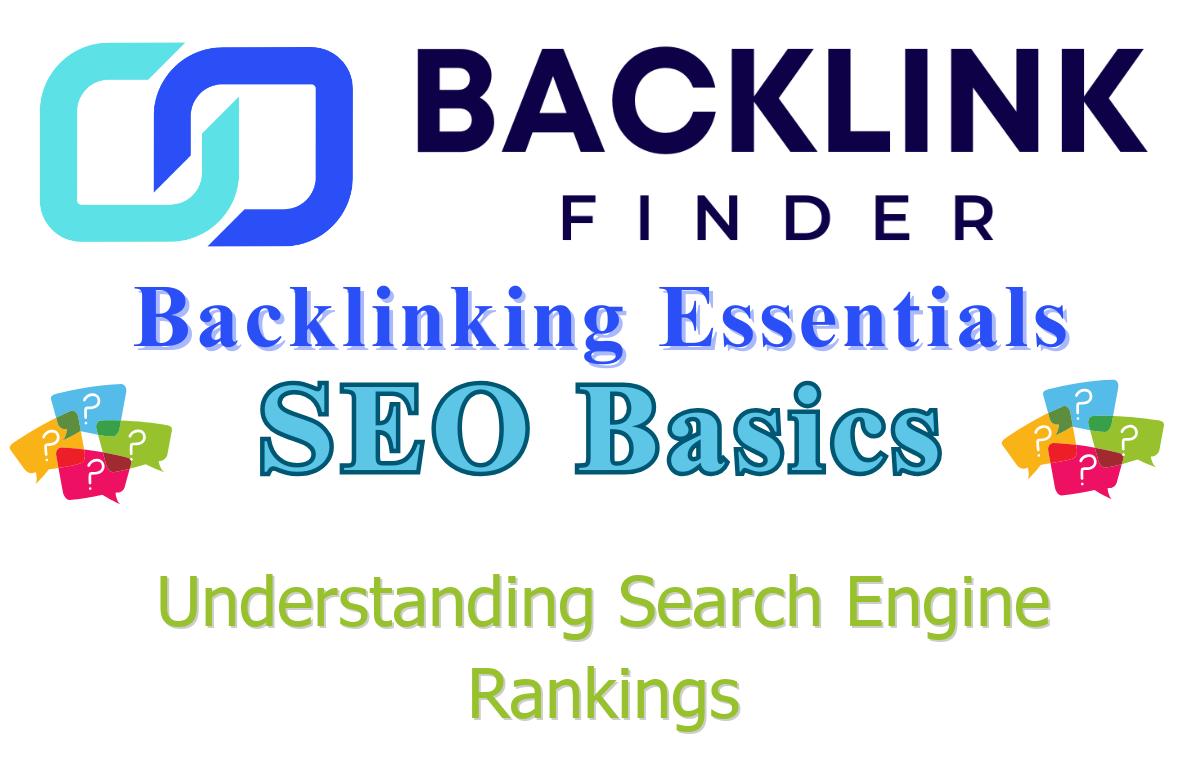Understanding Search Engine Rankings

Ever typed a question into Google and wondered why some websites land at the top? That’s the power of search engine rankings at work. For beginners, rankings can feel like a mystery, but they’re really just a system to sort the web’s chaos. This guide peels back the curtain, showing you how search engines like Google decide who gets the spotlight—and how you can nudge your site closer to the top. No jargon, just clear steps to get you started!
What Are Search Engine Rankings?
Search engine rankings are the order in which websites appear on results pages when you search for something, like “best hiking trails” or “SEO tips.” The higher a site ranks, the more likely it gets clicks. Rankings aren’t random—search engines use complex formulas called algorithms to score and sort pages based on relevance, quality, and trust.
Quick Analogy: Think of Google as a talent show judge. Your website’s performance—content, speed, links—decides if it gets a gold star or a back-row seat. The goal? Shine bright on page one!
Why Rankings Matter
Rankings are your ticket to visibility. Most folks don’t venture past the first few results, so climbing higher means more eyes on your site. Here’s why it’s a big deal:
- More Traffic: A #1 spot can grab 30% of clicks, while #10 might get less than 2%.
- Credibility: Users trust top-ranked sites, boosting your reputation.
- Free Exposure: Unlike ads, high rankings bring organic visitors at no extra cost.
Fun Stat: Over 75% of searchers never click past page one. That’s why understanding rankings is your first step to winning at SEO!
How Search Engines Rank Websites
Search engines like Google juggle hundreds of factors to rank sites, but don’t panic—it’s simpler than it sounds. Let’s unpack the four key players that shape your position, with tips to make them work for you.
1. Content Quality and Relevance
Your content—blog posts, videos, images—is the heart of rankings. Google loves pages that deliver exactly what users want, fast.
- Match Intent: If someone searches “easy recipes,” give them simple steps, not a chef’s memoir.
- Go Deep: A 1,000-word guide often beats a 200-word stub because it answers more questions.
- Stay Clear: Use headings, short sentences, and lists to make reading a breeze.
Example: A post titled “Beginner’s Guide to Yoga” with detailed poses and tips ranks higher than a vague overview. Nail the user’s need, and you’re halfway there!
2. Keywords and Optimization
Keywords are the words people type into search bars. Using them smartly helps Google know your page fits the bill.
- Place Wisely: Pop your keyword in the title, first paragraph, and a few times naturally.
- Think Specific: “Best coffee shops Seattle” grabs locals better than just “coffee.”
- Avoid Overkill: Too many keywords (like “SEO, SEO, SEO”) looks spammy and hurts you.
Example: A blog optimized for “budget travel tips” with clear keyword use outshines one that’s all over the place. It’s about focus, not force.
3. Backlinks and Authority
Backlinks—links from other sites to yours—are like votes of trust. They tell Google your site’s worth ranking.
- Quality Counts: One link from a respected blog trumps 20 from shady sites.
- Relevance Rules: A link from a travel blog to your travel guide carries more clout.
- Easy Start: Backlink Finder, with its 400,000+ marketplace listings, hooks you up with guest post opportunities to build solid links, no hassle.
Example: A guest post on a tech blog linking to your “Gadget Reviews” page can lift your rankings, signaling you’re a player in the niche.
4. User Engagement and Signals
Google watches how people interact with your site. Do they stick around or bounce? That’s a ranking clue.
- Dwell Time: Keep users reading with engaging posts—aim for 2+ minutes.
- Bounce Rate: Deliver what you promise so folks don’t leave right away.
- Clicks: Catchy titles like “Top 10 SEO Secrets” boost click-through rates.
Example: A page with videos and clear answers keeps users longer than a dull text wall, nudging your rank up.
Rankings aren’t magic—it’s content that solves problems, links that vouch for you, and users who stick around. Build for people, not just algorithms. https://t.co/Nz7kXyP8mW— Rand Fishkin (@randfish) September 28, 2021
First Steps to Boost Your Rankings
Ready to roll? You don’t need to tackle everything at once. Try these beginner-friendly moves:
- Write One Post: Create a helpful article, like “Why Rankings Matter,” with a keyword like “SEO rankings.”
- Check Speed: Use Google’s PageSpeed Insights to spot slow bits—fixing images is often enough.
- Get a Link: Pitch a guest post via Backlink Finder to earn a backlink.
- Watch Clicks: Tweak titles if Google Search Console shows low click-through rates.
Quick Win: Even one optimized page can start climbing in a month or two. Small steps, big rewards!
Ranking Myths to Skip
Don’t fall for these traps:
- Myth: Rankings Are Instant: SEO’s a marathon, not a sprint—expect 3–6 months for solid gains.
- Myth: More Keywords Win: Quality content beats keyword overload every time.
- Myth: Only Techies Rank: Beginners succeed with basics like good posts and links.
Rand Fishkin’s tweet sums it up: focus on people, and rankings follow.
Further Reading
- Moz: How Search Engines Work
- Ahrefs: Google Ranking Factors
- Search Engine Land: Understanding Search Rankings

